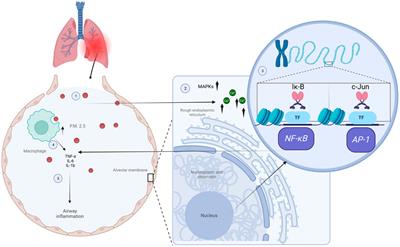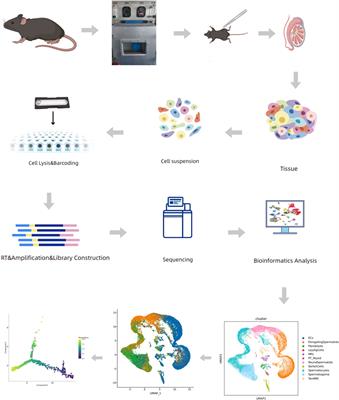REVIEW
Published on 17 Jan 2024
Epigenetic mechanisms of particulate matter exposure: air pollution and hazards on human health

doi 10.3389/fgene.2023.1306600
- 5,262 views
- 9 citations
5,482
Total downloads
15k
Total views and downloads
REVIEW
Published on 17 Jan 2024

ORIGINAL RESEARCH
Published on 15 Nov 2023

REVIEW
Published on 09 Jun 2023

